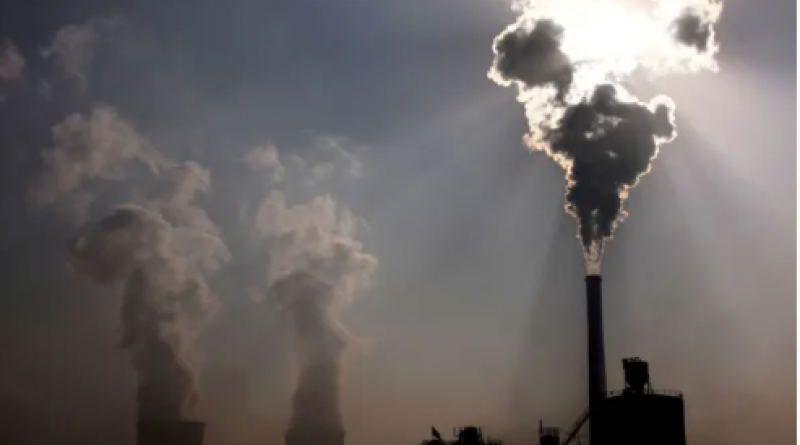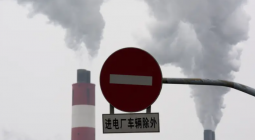Investing in coal power would be an expensive mistake.

The UK has enormous capacity to increase its energy supply from offshore wind. Australia too has vast potential for wind and solar power.
Wherever you are on the planet, the last 12 months have been very difficult.
In seeking the strongest economic recovery from the pandemic, it is understandable that many on the centre-right in particular want to focus on boosting existing industries. But when it comes to the energy sources of the future, investing in coal power would be an expensive mistake, not just for the environment but for the economy too.
The environmental case against coal has been well known for some time – its negative impact on the climate and the quality of the air we breathe is significant and unarguable. There is no doubt that countries continuing to use coal for power are making a material contribution to global warming. At a time when western allies are encouraging big polluters such as China and Russia to clean up their act, it is vital that we lead by example and end our own dependence on fossil fuels.
This cannot, of course, happen overnight. The coal industry is an important part of many countries’ economies and a major supplier of power – to end that right away, as some argue, would be to damage livelihoods and access to electricity. But by taking prudent decisions now, we can transition our power supply away from coal without inflicting that harm on people’s lives.
As well as being environmentally damaging, coal is no longer the energy panacea that it used to be. Indeed, rapid growth of renewable energy sources has rendered coal uncompetitive and expensive. Alternative, cleaner options for generating electricity such as solar and wind have plummeted in cost over the past decade, whereas the price of coal has stayed flat. If – as expected – these trends continue then it will not be long until coal is the most expensive mainstream power option. Relying on coal means not just higher electricity costs at home, but drastically reduced international trade potential with key export markets now committed to phasing it out altogether.
The UK has enjoyed a remarkable and rapid transition away from coal power in recent years, with accelerating growth in renewables replacing the “dash for gas” of the 1990s and driving coal down from 40% of electricity generation as recently as 2012, to just 2% now. The national electricity grid regularly goes for whole weeks at a time without any recourse to coal at all, and by 2024-2025 coal generation will have disappeared completely from the country that pioneered coal power in the industrial revolution.
While it is true to say that Australia’s reliance on coal for both power generation and energy exports is much greater than the UK’s, the risks of becoming even more reliant on it now are huge. At a time when so much of the world is seeking to abandon fossil fuels, we are on the cusp of a major global tipping point towards zero carbon alternatives.
Those arguing for new investments in coal ignore this reality but, perhaps more significantly, risk delaying the transition for those currently employed by the thermal coal industry. Offering false hope will just make that transition harder and more costly for those whose livelihoods have depended on the sector.
New investment in the coal industry will leave investors, including taxpayers, with vast stranded assets and a missed opportunity to invest in the high growth technologies of the future. Those nations which continue to evade the opportunity to clean up their power generation are risking not just reputational damage on the international stage, but the very real prospect of carbon taxes hitting their exports as other countries seek to drive down carbon emissions beyond their own borders.
It does not have to be this way, and there is a more prosperous and cleaner alternative path available. The UK has enormous capacity, as the government recognises, to increase its energy supply from offshore wind. Australia too has vast potential for wind and solar power – and while federal and state governments, the private sector and households are deploying renewables at record rates, this potential is yet to be fully realised.
Where clean power alternatives do not currently exist – for example in steel production – Australia is well placed to be a world leader on green hydrogen power and could show the UK, which is currently wrestling with how to produce steel in an environmentally friendly way, how this can be achieved. In reality, both countries need to focus on incentivising technological breakthroughs to give them the kickstart to commercial viability, rather than propping up industries that ultimately face terminal decline.
A green recovery would be good for jobs too. The UK is adding jobs in the low-carbon sector at two to three times the rate of the economy as a whole, and these jobs are sustainable jobs in high-growth areas, and much more likely to be in post-industrial parts of the country that have high unemployment rates. By backing renewable energy and setting out a plan for using it to replace coal in the electrification of transport and industry, Australia too can create thousands of jobs – many of them highly skilled – across the whole country.
Post the pandemic, we face some big choices on how to fire up our economies again. If we choose right, we will create a future that is both environmentally and economically sustainable. Let’s get on with it.
Rt Hon Philip Dunne is the UK Conservative MP for Ludlow and chair of the House of Commons Environmental Audit Committee



